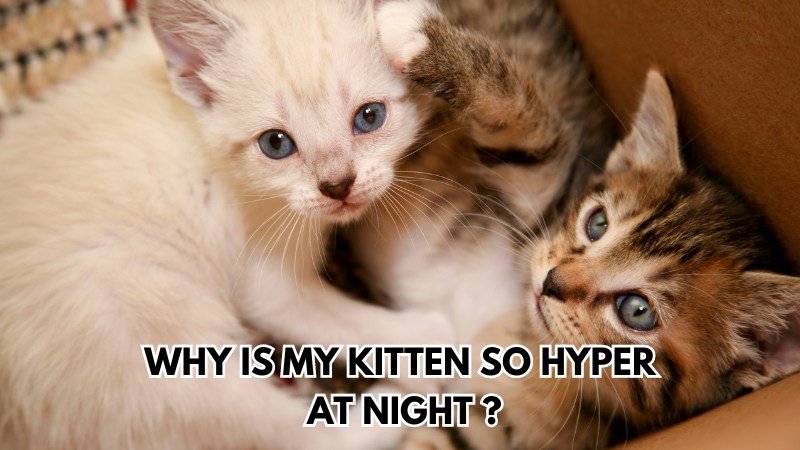You notice your kitten is acting a bit off. They’re spending more time in the litter box, and when you check, you see loose stools. This raises a worrying question: Is it normal for kittens to have diarrhea ?
Diarrhea in kittens is not uncommon, but it can be concerning for pet owners. In this article, we’ll explore why kittens might have diarrhea, how to handle it, and ways to prevent it in the future. By the end, you’ll know how to keep your furry friend healthy and happy.
- Why Kittens Get Diarrhea
- How to Handle Diarrhea in Kittens
- Preventing Diarrhea in Kittens
- Bonus Tip: Probiotics for Gut Health
Why Kittens Get Diarrhea
First, let’s look at some common reasons why your kitten might be experiencing diarrhea. There are many potential causes, ranging from diet changes to more serious health issues.
Dietary Changes
Kittens have sensitive stomachs. Different food or new treats can upset their digestive system. Gradually transitioning to new foods over a week can help prevent this.
Food Intolerance or Allergy
Sometimes, kittens may be intolerant or allergic to certain ingredients in their food. Common culprits include dairy, certain proteins, or grains. If you suspect this, try switching to a hypoallergenic or limited-ingredient diet.
Overeating
Kittens are little eating machines, but overeating can lead to diarrhea. Feeding them too much at once can overwhelm their digestive system. Make sure you’re following feeding guidelines and offering smaller, more frequent meals.
Parasites
Intestinal parasites like worms, giardia, or coccidia are common in kittens. These parasites can cause diarrhea and other health issues. Regular vet check-ups and deworming are essential.
Stress
Kittens are sensitive to changes in their environment. Moving to a new home, introduction to new pets, or changes in their routine can cause stress-induced diarrhea.
Infections
Bacterial, viral, and fungal infections can also lead to diarrhea. Infections like feline panleukopenia or salmonella are serious and require immediate veterinary attention.
Medications
Some medications, especially antibiotics, can disrupt your kitten’s gut flora, leading to diarrhea. If your kitten is on medication and develops diarrhea, consult your vet.
How to Handle Diarrhea in Kittens
Now that we know some common causes, let’s discuss how to manage diarrhea in kittens. Monitoring their condition and taking appropriate steps can help your kitten recover quickly.
Monitor Hydration
Diarrhea can lead to dehydration, which is dangerous for kittens. Ensure they have access to fresh water at all times. You can also offer an electrolyte solution designed for pets to help keep them hydrated.
Adjust Their Diet
If dietary changes caused the diarrhea, switch back to their old food and reintroduce the new food slowly. Try feeding them a bland diet, like boiled chicken and rice, for a couple of days to soothe their stomach.
Keep Their Litter Box Clean
A clean litter box is essential. Diarrhea can be messy, and a dirty litter box can worsen the issue or cause further stress. Scoop the box frequently and clean it thoroughly.
Avoid Treats and Table Scraps
Stick to a consistent diet and avoid giving your kitten treats or table scraps, which can upset their stomach. Keep their diet simple and balanced.
Consult Your Vet
If diarrhea persists for more than a day or two, or if your kitten shows other symptoms like lethargy, vomiting, or weight loss, contact your vet. They can perform tests to determine the cause and recommend appropriate treatment.
Follow Deworming Schedule
Ensure your kitten is on a regular deworming schedule. Your vet can recommend the best deworming plan based on your kitten’s age and health.

Preventing Diarrhea in Kittens
Prevention is always better than cure. So here are some tips to help prevent diarrhea in your kitten.
Gradual Dietary Changes
When introducing new food, do it gradually. Mix a small amount of the new food with their current food and increase the amount slowly over a week.
Quality Food
Feed your kitten high-quality, nutritionally balanced food. Avoid cheap, low-quality food that can cause digestive issues.
Regular Vet Visits
Regular vet check-ups are crucial. Your vet can catch potential issues early and keep your kitten on a preventive healthcare schedule.
Stress Reduction
Minimize stress by keeping a consistent routine and providing a safe, comfortable environment. Gradually introduce new pets or changes in the household.
Keep Their Environment Clean
A clean environment reduces the risk of infections and parasites. Regularly clean their bedding, litter box, and play areas.
Bonus Tip: Probiotics for Gut Health
Probiotics can help maintain a healthy balance of gut bacteria. Ask your vet about incorporating a probiotic supplement into your kitten’s diet to support their digestive health.
Read: Why does My Kitten Play in the Litter Box ?
Diarrhea in kittens is common but can be concerning. Understanding the causes and knowing how to manage it can help your kitten recover quickly and prevent future episodes. By monitoring their health, providing a balanced diet, and keeping a clean, stress-free environment, you can ensure your kitten grows into a healthy, happy cat.
If your kitten has diarrhea, don’t panic. Pay attention to their symptoms, take appropriate steps to manage their condition, and consult your vet if needed.
With proper care and attention, your kitten will be back to their playful, energetic self in no time. Remember, a healthy kitten is a happy kitten, and a happy kitten makes for a happy owner.***
Watch Videos about Cat & Kitten Care on Youtube @naowthecat